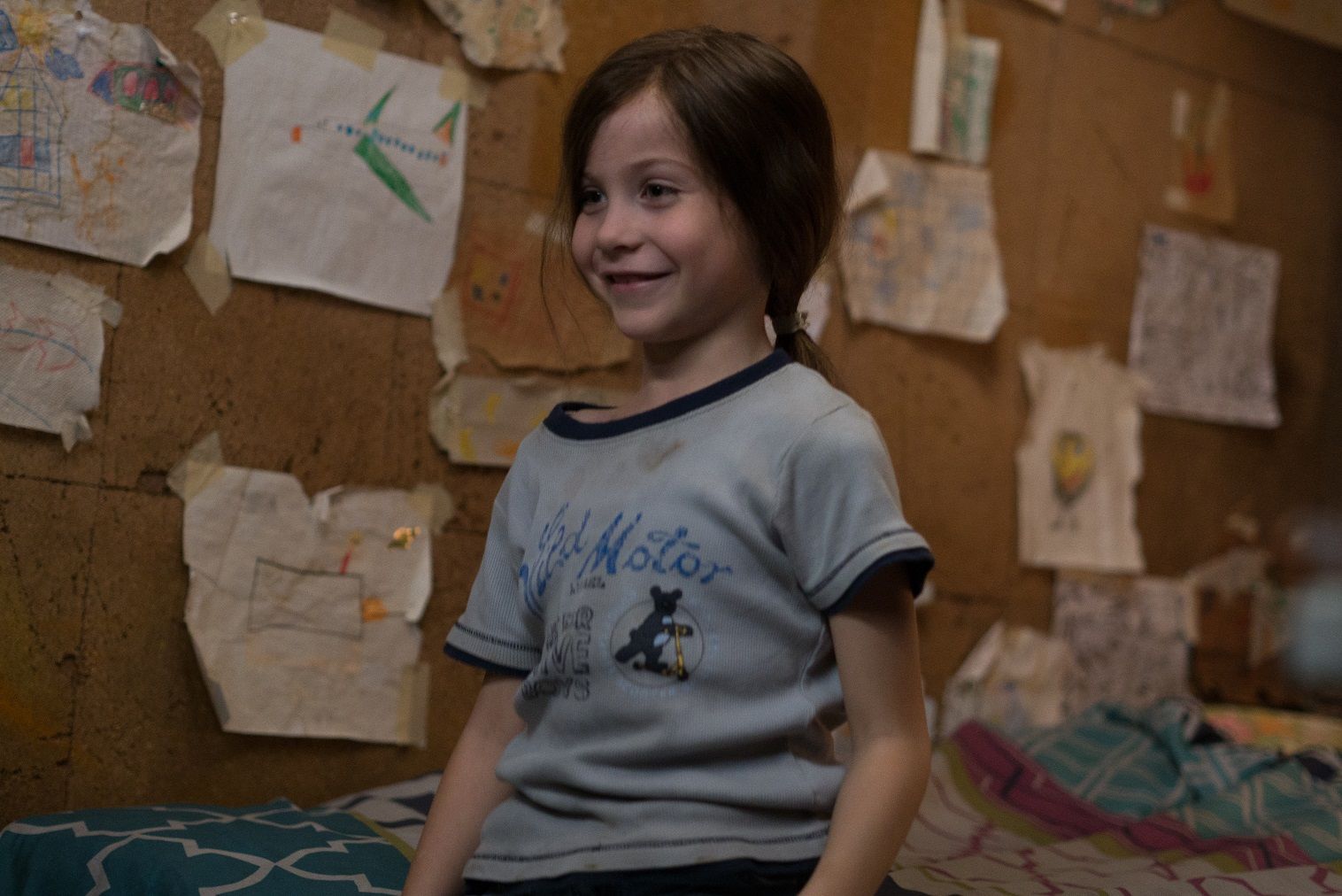Kieran, here with a second look at SAG nominee Jacob Tremblay's work in Room.

My antennae were attuned for several things this past weekend while watching Lenny Abrahamson’s Room for the second time. I’ll say up front that searching for the power of Brie Larson’s accomplished, already heralded performance as Ma was not one of them. That was received on first watch and, frankly hadn’t faded from memory even a little. A rewatch only confirmed the potent emotionality of Larson’s work and it’s fortunate that work this exemplary is being so universally recognized as such—that isn’t always the case. Among other things, I was watching for Jacob Tremblay’s performance as Jack, Ma’s doting and mystified son.
Full disclosure: I often find praise heaped upon juvenile performances incredulous. Like many, I found myself fighting tears (and losing that fight) several times throughout my first viewing, most often during Tremblay’s scenes. The grimness of the initial scenario and the bond between Ma and Jack on the script level had my suspicions raised. Was Tremblay’s performance itself eliciting the emotional response or is it solely because of what’s already built into the architecture of the piece?
This was my question going into Room for the second time. [More...]
The second time through I was struck not by just how rich and accomplished the performance is, but how vital. It’s almost tempting to say that Tremblay is even more important to the success of the film than Larson. What she’s doing, the unease she’s conveying in her other relationships both in and outside of the room environment simply wouldn't resonate half as well if you took away the juxtaposition with Jack. This is thanks to Tremblay’s steady, anchoring performance.
Yes, Tremblay is helped tremendously by the filmmaking and the script. The decision to tell the story largely through Jack’s relatively new eyes is a smart one that enhances nearly every emotional beat. This is especially evident when we return to room and see for the first time how objectively and oppressively small it was compared to what Jacob was experiencing.

How much of this can be credited to Abrahamson’s direction is a question that certainly many who are skeptical of the skill of child actors will raise. On closer inspection, Tremblay has an inherent ease and shrewdness about when to lean into sentimentality and when to avoid it.
Going through historical roster of acclaimed child performances, I found myself racking my brain trying to think of which one most reminded me of Tremblay’s work and I drew a blank. Despite my stated bias, there are a few that I do think are genuinely accomplished (Quvenzhané Wallis in Beasts of the Southern Wild and Justin Henry in Kramer vs. Kramer, for example). But, Tremblay’s work here is singular. In terms of readability even in quiet moments, the performance it most calls to mind is actually Catherine Keener’s work in Capote. They’re operating at totally different registers. But, like Keener, I felt I was watching such an incredibly emotive, readable face that was able to convey more than what was on the page.

There’s a scene where Ma loses her cool with Jack and drags him into her mother’s living room, forcefully urging him to play with his new toys. Rather than opting for showy crying or displaying outward fear at Ma’s impatience (which would have been a totally valid if expected choice), you watch Jack in that moment decide not to say something. Watching a character think and make decisions without dialogue can be fascinating with the right actor, as in the case of Tremblay who does so with such naturalism and grace. There are actors much older than Tremblay, with many more decades of experience under their belts who have yet to master this. It’s also the kind of internal psychology for which male actors so rarely receive praise. Male actors in the Oscar race tend to get praised for gruff, earnest masculinity (Leonardo Dicaprio), mimicry (Michael Fassbender) or both (Johnny Depp).
Should Brie Larson go on to win the Oscar for her performance in Room, she’ll be in the top-tier, qualitatively of Best Actress winners. She’s incredible, yet I’m surprised to report that it’s Tremblay who is the true MVP of Room and I’m predicting (and hoping for) a surprise nomination in Best Actor, not Supporting Actor where he’s being campaigned. Ma is a strong character, certainly. But, as even she admits, she got her strong from Jack.

Related: Best Actor and Supporting Chart. All articles on Room
